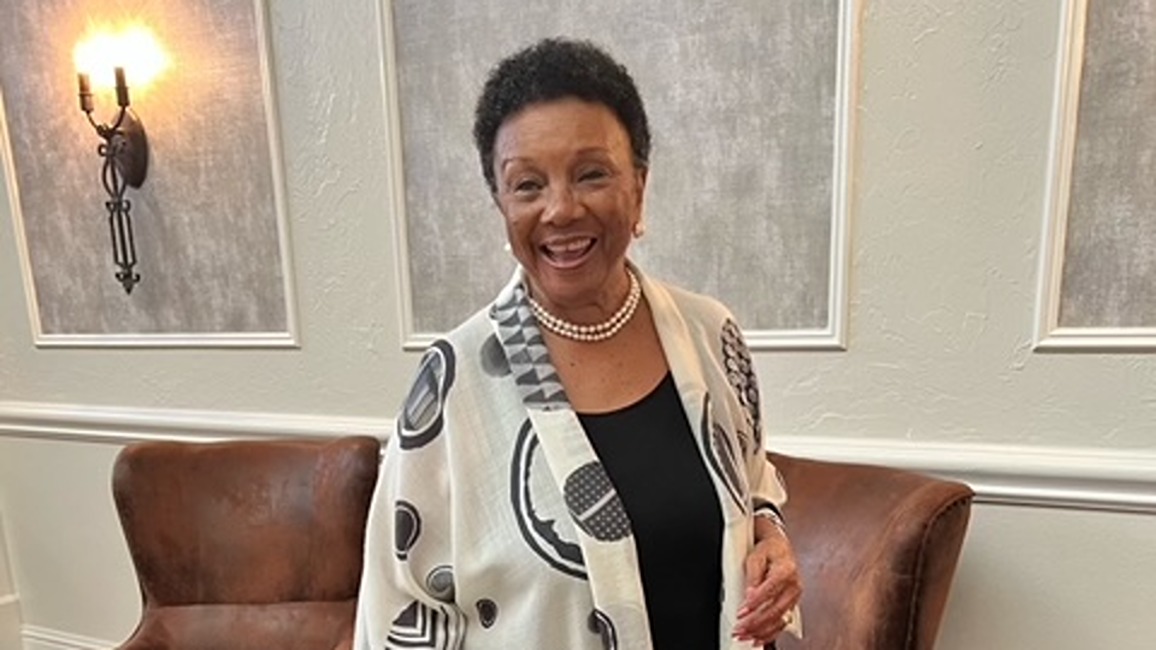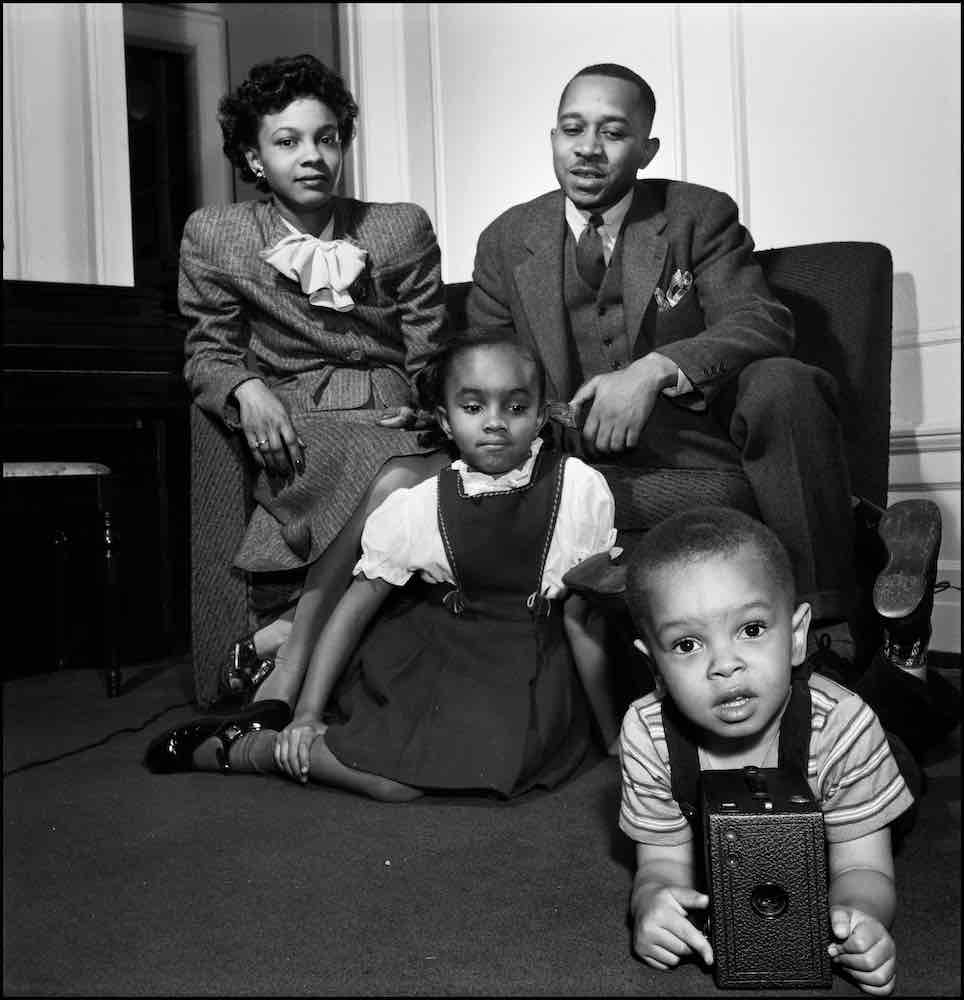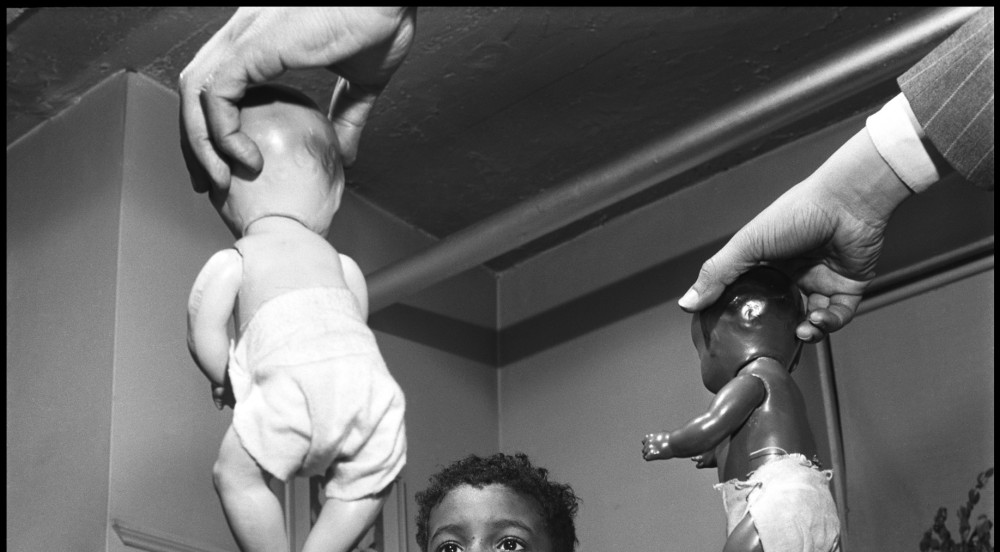The Gordon Parks Foundation, which preserves the iconic photographer’s work and his legacy of advancing social justice through art, is hosting its annual gala in New York City on May 23, 2023. One of its guests of honor is Kate Clark Harris, the daughter of Dr. Kenneth Clark and Dr. Mamie Clark, the first African American man and woman to earn a Ph.D. in psychology from Columbia University in the early 1940s.

The couple was also behind the famous “Doll Tests” in 1947, which were once featured in EBONY. When young Black children were instructed to pick between a Black and a white doll, many chose the white one, which showed the negative impact that segregation had on the children’s self-esteem. Gordon Parks shot the famous photos of the experiment, which would become a cornerstone in the Brown vs. Board of Education Supreme Court decision to desegregate public schools.
Clark Harris has carried on her parents’ legacy throughout her career as a psychiatric social worker and advocate for the urban poor. She served as executive director of New York City’s Northside Center for Child Development, an organization her mother founded in 1946 when she couldn’t find work as a Black psychologist.
EBONY chatted with Harris to learn more about childhood with her famous parents, and what she remembers of the legendary photographer himself.

Mr. Parks so aptly captured the emotion of the young boy in your parents’ famous doll experiment.
What you see there is the pain and confusion of that young boy as he stared at the dolls. And there is another photo where my father was standing [behind] the boy and you can see my father's torture, that he was very pained over what was happening. Mr. Parks was another part of the project in the sense that he illustrated what my parents' test was proving, that was his genius. He was the photographer; my parents' genius was the research. And they both told the story.

When you think of Gordon Parks, what comes to mind about the impact that he made on Black culture and society?
I remember him as a man and a friend of my parents. He was extraordinarily talented and was very involved in taking pictures of us and our family, but back then, I didn't think of it as anything special. He would come and set up certain pictures, and it was fun. The one I remember was with my mother, father, brother, and me. I think I was on the floor.
What was it like growing up with the parents who created the doll experiment?
It was just a regular home. That and that's what I loved about it, that my parents never made us feel special or different. It was my mother's idea to start the test to start to examine the children's development of ego and how they think about themselves at a very early age. My father was concerned about what these young children, some preschool-age, thought of themselves. It started out with stick figures. Then it was coloring books and then came the dolls. My father came home one day with so many dolls, Black and white ones, and I really thought that they were mine. They did give me dolls. Not the same, but other Black dolls.
What were some of the things you learned from your mom and dad?
My mother was quite interested in children's development, and both my parents felt that all human beings were equal. So it was painful to see that young children did not feel that they had the same humanity and they had been treated in a certain way. It wasn't necessarily overt, but their schools were different from white children's schools. And you could tell that had taken its toll.
How do you feel children are faring today? Has that equality been established?
In some ways, we're still struggling because many children are still exposed to the grand inequality. Society has to grow up.
The Gordan Parks Foundation's Annual Gala is on May 23, 2023, in New York City.













